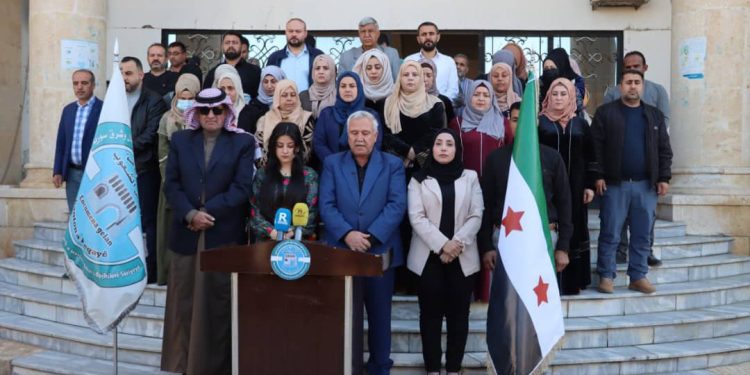The Autonomous Administration of North and East Syria has strongly criticized the newly formed Syrian transitional government, declaring that it closely resembles the previous regime by continuing to represent only one political force.
In an official statement published on its media channels, the Autonomous Administration expressed deep disappointment over the formation of the new government, saying Syrians had hoped for a genuinely inclusive national leadership that reflects the country’s diverse ethnic and political makeup. Instead, it argued, the government fails to offer fair and authentic representation to all components of Syrian society.
“The new government mirrors its predecessor in its lack of diversity and in the monopolization of power by a single party,” the statement said. It warned that such exclusionary politics would drag Syria back to “square one” and repeat the very patterns that sparked the 2011 uprising.
According to the statement, the current governmental structure contradicts the goals of the Syrian revolution and the democratic change that millions of Syrians have long demanded. The Administration further warned that without inclusive governance, the government will be incapable of effectively addressing Syria’s ongoing crises and will instead deepen the country’s fragmentation.
Most notably, the Autonomous Administration rejected any obligation to implement decisions issued by the new government, viewing its formation as a continuation of past mistakes rather than a step toward a comprehensive political solution.
Sharaa Unveils Transitional Government Amid High Hopes
The remarks came just a day after Syria’s transitional president, Ahmad al-Sharaa, announced the formation of a new government consisting of 23 ministerial portfolios. The move, presented during a ceremony at the Presidential Palace in Damascus, was portrayed as a major milestone in the country’s reconstruction process after the end of Assad-era rule.
In his speech, Sharaa emphasized that the new cabinet reflects a “shared will to build a new Syria” and outlined key priorities: rebuilding state institutions, restoring economic stability, fostering investment, strengthening the local currency, and maintaining stable international relations.
However, despite these ambitions, the Autonomous Administration’s rejection signals persistent fault lines within Syria’s political landscape—raising questions about the inclusivity and legitimacy of the transitional government as it attempts to move the country forward.
This article was translated and edited by The Syrian Observer. The Syrian Observer has not verified the content of this story. Responsibility for the information and views set out in this article lies entirely with the author.


